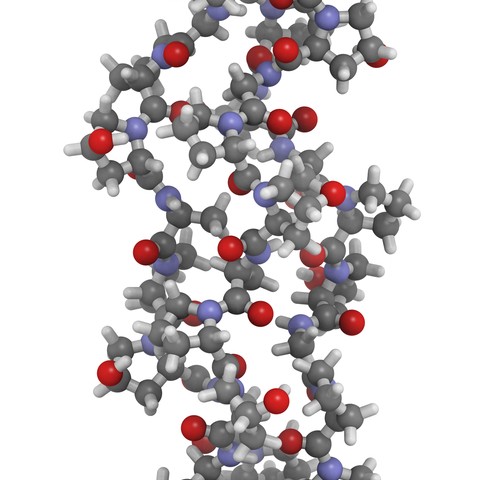Researchers from Washington State University have developed a drug-delivery system consisting of a protein vesicle — a kind of “protein cage” — encapsulating an anti-cancer drug. This novel system achieved direct, targeted, and controlled delivery of an anti-cancer drug to lung cancer cells. The research study, entitled “Hyaluronic acid-conjugated apoferritin nanocages for lung cancer targeted drug delivery,” was published in Biomaterials Science.
Non-specificity for cancer cells and systemic delivery are the main downsides of chemotherapy drugs, leading to serious toxic effects. To overcome this, the research team in the WSU Voiland College’s School of Mechanical and Materials Engineering, led by Professor Yuehe Lin, designed a delivery system consisting of a “cage” of apoferritin. This natural protein is responsible for encapsulation and transport of free iron in the blood. The anti-cancer drug daunomycin (DN) was encapsulated into the apoferritin interior. This was achieved by mixing the protein with the negatively charged poly-L-aspartic acid (PLAA).
The slightly acidic environment caused the apoferritin to swell, open and attract the positively charged drug DN, which was stably stored inside the protein cage. PLAA also worked as a protector of drug leakage. Specific targeting of cancer cells was achieved by covering the apoferritin surface with hyaluronic acid (HA) that binds to CD44, a receptor on the cancer cell surface. Once in contact with the cancer cell, the apoferritin, sensitive to pH variations, opened and let the drug inside the cancer cell.
This delivery system was tested in vitro, both in healthy human lung cells and lung cancer cells, where scientists observed the effective binding of HA to the receptor and the anti-tumor activity achieved by specific delivery of the drug. Healthy lung cells were not attacked, while more than 70% of tumor cells died. These results confirmed that the system works fairly well or better than the free form of the drug, and without the common debilitating side effects.
Researchers believe that this apoferritin cage shows great therapeutic potential as a delivery system of anti-cancer drugs, but highlight the need for further testing, as these promising observations result from preliminary cell tests.

